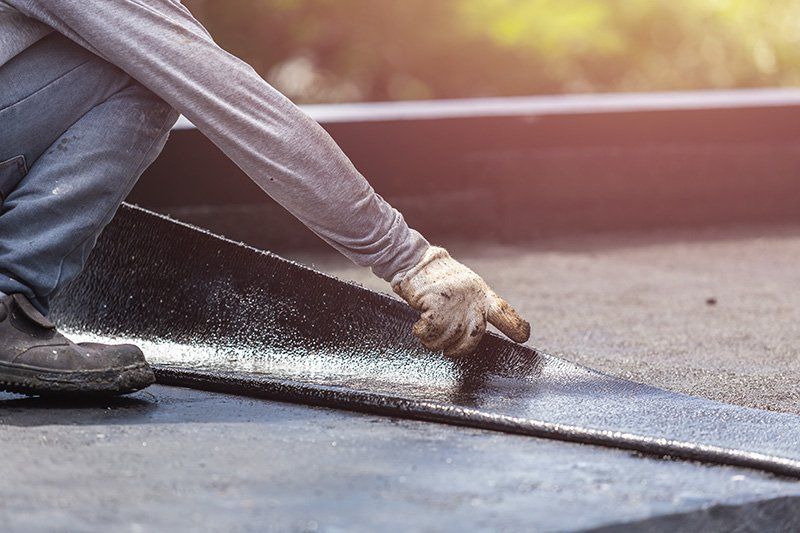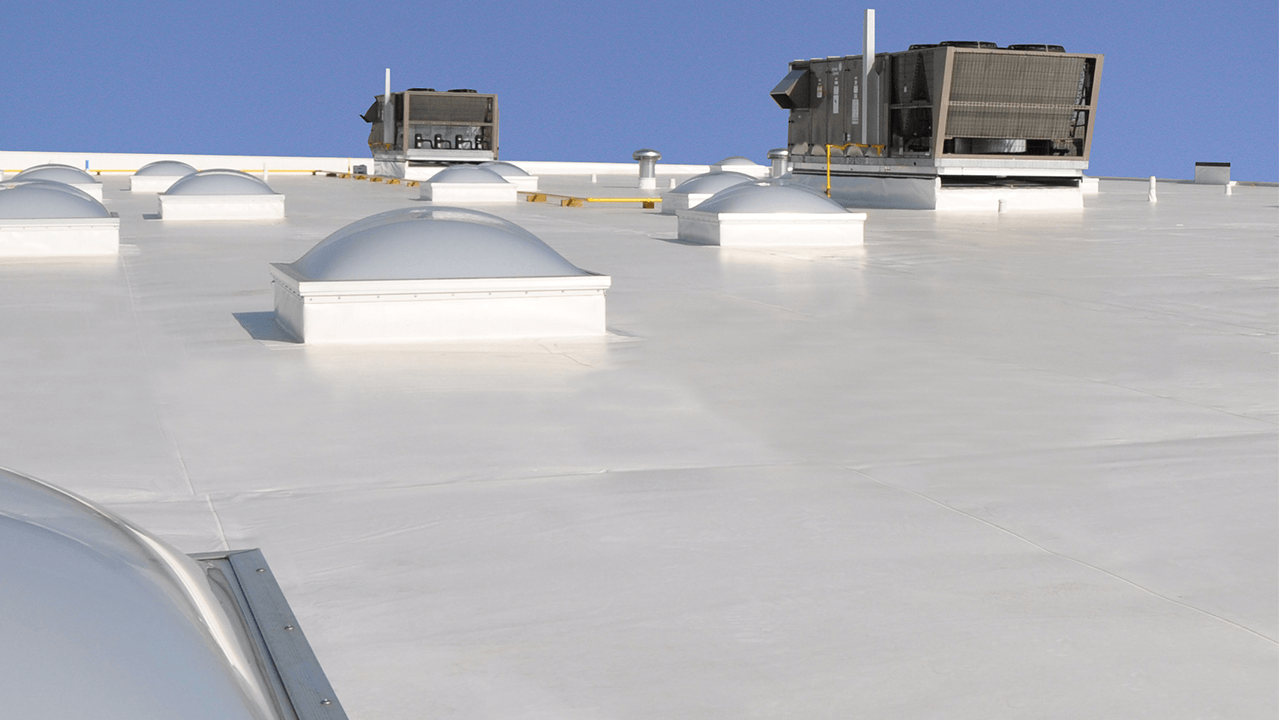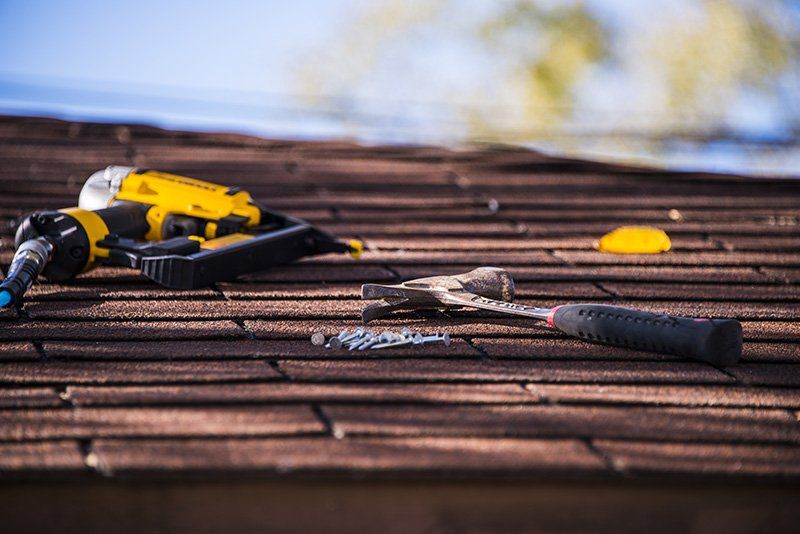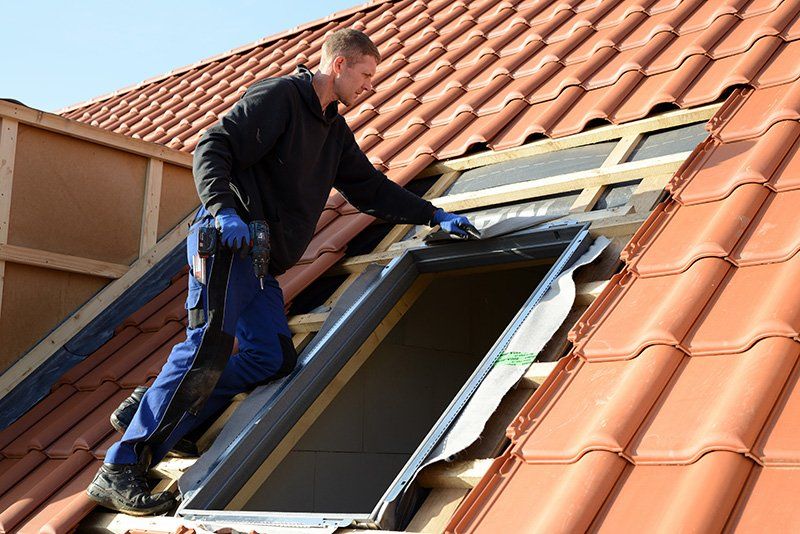By MBM Admin
•
October 7, 2025
As a Houston property owner, you're likely aware of the city's notorious weather conditions, which can wreak havoc on your roof. You're probably wondering what's causing your roof to fail and how to make smart repair decisions that save you money. You're about to discover the ultimate guide to understanding Houston's unique roofing challenges and making informed decisions about your roof repair, including the best options for roof repair. Key Takeaways: Houston's unique climate, characterized by extreme heat, humidity, and frequent storms, accelerates the breakdown of roof materials and reduces roof lifespans by 30-40%, making regular maintenance and informed repair decisions crucial for property owners to save money. Understanding the specific challenges affecting different types of roofs in Houston, such as shingle system failures, flat and low-slope membrane issues, and metal roofing challenges, is crucial for making informed repair decisions and optimizing costs. A comprehensive approach to roof repair in Houston involves considering factors such as age-based decision frameworks, damage assessment scoring systems, cost-benefit analysis, energy efficiency upgrade opportunities, and insurance coverage optimization strategies to ensure property owners make smart repair decisions that save money in the long run. Understanding Houston's Unique Roofing Challenges As you navigate the complexities of roof repair in Houston, it's necessary to consider the city's unique climate and its impact on your roof's lifespan. Houston's subtropical climate, characterized by hot summers and mild winters, poses significant challenges to roofing materials. The city's proximity to the Gulf of Mexico also makes it prone to hurricanes and severe thunderstorms, which can cause extensive damage to roofs. To make informed decisions about your roof repair, it is essential to understand the specific challenges that Houston's climate presents to your roof. Houston's climate is characterized by extreme temperatures, high humidity, and frequent storms, which can result in a range of roof-related issues. For instance, the heat and humidity can cause roofing materials to deteriorate faster, while storms can lead to damage from wind, hail, and flying debris. Furthermore, Houston's unique weather patterns, such as sudden temperature swings and flash flooding, can also affect your roof's integrity. By understanding these challenges, you can take proactive steps to maintain your roof and prevent costly repairs down the line. Climate Factors Impacting Roof Lifespan The climate in Houston plays a significant role in determining the lifespan of your roof. Some of the key climate factors that impact roof lifespan include: High temperatures which can cause roofing materials to degrade faster Humidity, which can lead to moisture accumulation and damage to roofing materials Storms, which can cause damage from wind, hail, and flying debris UV radiation, which can cause roofing materials to deteriorate over time When selecting roofing materials and designing your roof, consider these climate factors to ensure it can withstand the unique challenges of Houston's climate. Common Roofing Materials and Their Vulnerabilities Different roofing materials have varying levels of vulnerability to Houston's climate. For example, asphalt shingles are prone to granule loss and cracking due to extreme heat, while metal roofs can be susceptible to rust and corrosion from humidity and salt air. Flat roofs, on the other hand, can be vulnerable to ponding water and membrane damage from storms. By understanding the vulnerabilities of different roofing materials, you can make informed decisions about the best materials to use for your roof and take steps to maintain and repair them as needed. Additionally, the age and condition of your roof can also impact its vulnerability to climate-related damage. Older roofs may be more prone to damage from storms and extreme weather events, while newer roofs may be more resistant to these challenges. By considering the age and condition of your roof, you can take proactive steps to maintain and repair it, ensuring it continues to provide protection and shelter for your home or business. Identifying Key Roof Problems in Houston As you assess your roof's condition, it's imperative to identify the specific problems that may be causing its failure. You'll want to look for signs of damage, wear, and tear, as well as any potential issues that could lead to more significant problems down the line. By understanding the common roof problems in Houston, you can make informed decisions about repairs, maintenance, and potential replacement. Damage Due to Extreme Weather Houston's unique climate, characterized by hot summers, humid winters, and frequent storms, can take a significant toll on your roof. You may notice damage from extreme weather events, such as hail, wind, or lightning strikes. For example, hail can cause dents, cracks, or even punctures in your roof's surface, while strong winds can lift shingles or tear off entire sections of roofing material. It's crucial to inspect your roof after severe weather events to identify any potential damage. Some common signs of weather-related damage include: Dented, cracked, or missing shingles Loose or torn flashing Cracked or broken tiles Water stains or leaks Recognizing these signs early on can help you address the issues before they become more extensive and costly problems. Issues Specific to Roof Types Different types of roofs are prone to specific problems. For instance, asphalt shingle roofs may experience granule loss, curling, or cracking, while metal roofs can suffer from rust, corrosion, or fastener backup. Flat roofs, on the other hand, may be more susceptible to ponding water, membrane shrinkage, or seam failures. Understanding the unique challenges associated with your roof type can help you identify potential issues and take proactive measures to prevent them. The following table highlights some common issues specific to different roof types: Roof Type Common Issues Asphalt Shingle Granule loss, curling, cracking Metal Rust, corrosion, fastener backup Flat Ponding water, membrane shrinkage, seam failures Tile Cracked or broken tiles, mortar joint deterioration Slate Cracked or broken slates, nail rust, underlayment failure By being aware of these potential issues, you can take steps to maintain your roof and prevent costly repairs down the line. Recognizing the specific challenges associated with your roof type can help you make informed decisions about maintenance, repairs, and potential replacement. Cost Considerations for Roof Repairs As you navigate the process of repairing your Houston roof, consider the associated costs. Your goal is to make smart repair decisions that save you money in the long run. To do this, you'll need to understand the average repair costs, as well as the factors that influence pricing. Having a clear understanding of these costs enables you to make informed decisions about your roof repair. When budgeting for roof repairs, consider the potential costs of various types of repairs. For example, minor repairs may cost between $200 and $1,500, while moderate maintenance can range from $1,500 to $8,000. Major repairs, on the other hand, can cost $8,000 or more. By understanding these cost ranges, you can plan accordingly and make the necessary adjustments to your budget. Average Repair Costs The average cost of roof repairs in Houston can vary widely, depending on the type and extent of the damage. However, by understanding the average costs, you can better plan for your repair. For instance, you may need to budget for the price of materials, labor, and any necessary permits or inspections. By factoring these costs into your budget, you can ensure that you have enough money set aside for the repair. Some common roof repairs and their average costs include: Minor repairs, such as fixing a leaky roof or replacing a few missing shingles, can cost between $200 and $1,500. Moderate repairs, such as replacing a section of the roof or repairing damaged flashing, can cost between $1,500 and $8,000. Major repairs, such as replacing the entire roof or repairing significant structural damage, can cost $8,000 or more. Please note that these costs are estimates only, and the actual cost of your roof repair may vary depending on the specifics of your situation. Factors Influencing Pricing Several factors can influence the cost of your roof repair, including the type and quality of materials used, the complexity of the repair, and the contractor's labor costs. Additionally, the time of year and the availability of materials and labor can also impact the price. By understanding these factors, you can better plan for your repair and make informed decisions about your budget. Some other factors that can influence pricing include: The size and complexity of the repair The type and quality of materials used The labor costs of the contractor The time of year and the availability of materials and labor Assume that by considering these factors, you can get a more accurate estimate of the cost of your roof repair and make wise decisions about your budget. Innovative Repair Strategies for Property Owners As you navigate the complex world of Houston roof repair, you'll need to make informed decisions about when to repair and when to replace your roof. The age, condition, and material of your roof will all play a role in determining the best course of action. For instance, if your roof is nearing the end of its expected lifespan (typically 15-20 years for asphalt shingles in Houston's climate), it may be more cost-effective to replace it rather than continually repairing it. On the other hand, if your roof has suffered damage from a storm or other isolated event, targeted repairs may be the best course of action. Your budget will also be a significant factor in your decision-making process. You'll need to weigh the costs of repair versus replacement, considering not only the upfront expenses but also the long-term savings and potential returns on investment. For example, investing in a new, energy-efficient roof can lead to significant reductions in your energy bills and even increase your property's value. By taking a holistic approach to your roof repair strategy, you can make smart decisions that benefit your wallet and your property in the long run. When to Repair vs. Replace The decision to repair or replace your roof depends on various factors, including the extent of the damage, the age and condition of your roof, and your budget. If your roof has suffered minor damage, such as a few missing shingles or a small leak, repairs may be the most cost-effective option. However, if your roof is old, damaged, or no longer functioning correctly, replacement may be the better choice. You should consider the 50% rule: if the repair costs exceed 50% of the replacement cost, it's likely more economical to replace your roof. Additionally, if you're planning to sell your property in the near future, a new roof can be a significant selling point, potentially recouping its cost and then some. It's crucial to consult with a professional roofing contractor to determine the best course of action for your specific situation. They can assess your roof's condition, provide a detailed estimate of the repair or replacement costs, and help you make an informed decision. By choosing the right approach, you can ensure your roof continues to protect your property and your loved ones for years to come. For instance, a study by the National Association of Home Builders found that a new roof can recoup up to 105% of its cost at resale, making it a valuable investment for homeowners. Assessing Long-Term Value When evaluating your roof repair options, it's crucial to consider the long-term value of your investment. A new roof can increase your property's value, enhance its curb appeal, and provide a significant return on investment. According to a study by the National Association of Realtors, a new roof can recoup up to 105% of its cost at resale. Moreover, a well-maintained roof can help reduce energy consumption, lower your utility bills, and even mitigate the risk of costly repairs down the line. By prioritizing quality materials, expert installation, and regular maintenance, you can ensure your roof continues to perform optimally and provide long-term benefits for your property. For example, investing in a cool roof coating can help reduce your energy consumption by up to 20%, while a solar-ready roof can generate significant savings on your energy bills. Additionally, a well-maintained roof can help prevent costly repairs, such as those resulting from water damage or structural issues. By taking a proactive approach to your roof's maintenance and repair, you can protect your investment, enhance your property's value, and enjoy long-term peace of mind. You should also consider the potential tax benefits of investing in a new roof, such as the ability to deduct the cost of energy-efficient upgrades from your taxes. Navigating Insurance and Warranty Challenges As you probe into the process of repairing your Houston roof, you'll likely encounter a complex web of insurance and warranty considerations. Your insurance policy, for instance, may cover certain types of damage, such as hail or wind damage, but not others, like maintenance-related issues. Understanding the specifics of your policy is vital to avoid unnecessary out-of-pocket expenses. You should review your policy documents to determine what is covered and what is not, as well as the applicable deductibles and limits for your situation. Your warranty, whether it's a manufacturer's warranty or a workmanship warranty provided by your roofing contractor, is another critical factor to consider. You need to know what is covered under the warranty, how long it lasts, and what steps you must take to keep it valid. Regular maintenance, for example, may be necessary to ensure that your warranty remains valid. By carefully reviewing your warranty documents and understanding your obligations, you can protect your investment and prevent costly repairs in the future. Understanding Coverage Options In terms of insurance coverage, you have several options to consider. Replacement Cost Value (RCV) coverage, for instance, will pay to replace your roof with a new one of similar quality, without deducting for depreciation. Actual Cash Value (ACV) coverage, on the other hand, will pay the current market value of your roof, taking into account its age and condition. You should carefully evaluate these options and choose the one that best fits your needs and budget. Additionally, consider supplemental coverage for specific types of damage, such as hail or windstorms, which can provide extra protection for your roof. You should also be aware of the common reasons for claim denials and take steps to prevent them. For example, failing to document the damage properly or not providing sufficient evidence to support your claim can lead to denial. By understanding the claims process and taking a proactive approach, you can minimize the risk of denial and ensure that you receive the compensation you are entitled to. It's also vital to work effectively with your insurance adjuster, providing them with all the necessary information and documentation to process your claim efficiently. Claim Filing Best Practices Filing a claim can be a daunting task, but there are steps you can take to make the process smoother. First, carefully document the damage to your roof by taking photos and videos from multiple angles. You should also keep a record of all correspondence with your insurance company, including dates, times, and details of conversations. When filing your claim, be sure to provide all the necessary information and documentation, including your policy number, a detailed description of the damage, and any supporting evidence. By being thorough and organized, you can help ensure that your claim is processed quickly and efficiently. Additionally, you should be aware of the timeline for filing a claim and the potential consequences of missing the deadline. In Texas, for example, you typically have two years from the date of the damage to file a claim. If you miss this deadline, you may forfeit your right to compensation, so it's vital to act promptly. You should also consider hiring a public adjuster or seeking the advice of a professional contractor to help guide you through the claims process and ensure that you receive a fair settlement. By taking these steps, you can protect your rights as a policyholder and get the compensation you deserve for your damaged roof. Choosing the Right Roofing Professionals As you navigate the process of finding the right roofing professionals for your Houston roof repair, focus on several key factors that distinguish reliable contractors from those that may not meet your needs. Your roof is a significant investment, and its repair or replacement should be handled by professionals who understand the unique challenges posed by Houston's climate. You'll be looking for contractors who are not only licensed and insured but also experienced in handling the specific types of roofs and issues common in the Houston area. Your search should include verifying Texas licensing and insurance requirements, looking for local Houston experience and knowledge of the climate, and ensuring specialization in your specific roof type and property class. Emergency response capabilities, manufacturer certifications, warranty offerings, and a strong safety record are also crucial. Be wary of red flags such as storm chasers, high-pressure sales tactics, and bids that seem unusually low, as these can indicate a lack of professionalism or an attempt to cut corners. Qualifications and Experience Don'ts Avoid contractors who cannot provide proof of licensing and insurance, as this is a fundamental requirement for protecting you and your property. You should also be cautious of contractors who lack experience with your specific type of roof or who have no history of working in the Houston area. Without local expertise, a contractor may not fully understand the unique weather challenges your roof faces, from the intense heat to the potential for severe storms and hurricanes. Furthermore, be skeptical of contractors who are pushy or aggressive in their sales approach, as this can be a sign of desperation or a lack of genuine interest in providing quality service. Contractors who offer unusually low bids should also raise suspicions. While saving money is essential, a bid that is significantly lower than others may indicate that the contractor plans to use substandard materials or cut corners in the repair process. This could lead to a repair that does not last, necessitating further and potentially more costly repairs down the line. By avoiding these pitfalls, you can better ensure that your roof repair is handled professionally and with your long-term interests in mind. Evaluating Contractors Evaluating potential contractors for your Houston roof repair involves a thorough review of their qualifications, experience, and reputation. Start by asking for references and checking online reviews to gauge their work quality and customer service. It's also beneficial to inquire about their experience with roofs similar to yours, as well as their familiarity with Houston's specific weather conditions. A contractor who understands the local climate will be better equipped to provide a repair that withstands the area's extreme weather patterns. In addition to these factors, you should assess their warranty and guarantee policies, as well as their approach to emergency repairs and maintenance. A comprehensive warranty can provide peace of mind, knowing that you are protected in case the repair does not meet expectations. Their ability to respond to emergencies and perform regular maintenance is also crucial, as it ensures that any issues are addressed promptly, thereby preventing minor problems from escalating into major ones. By carefully evaluating these aspects, you can make an informed decision and select a contractor who is well-suited to handle your Houston roof repair needs, providing you with a durable and reliable solution that enhances the integrity and longevity of your roof. This careful selection process is an investment in the protection and value of your property, ensuring that your roof continues to safeguard your home or business against the elements for years to come. To wrap up From above, you've now gained a comprehensive understanding of the factors that contribute to Houston roof failures and the smart repair decisions that can save you money. You've learned about the unique challenges posed by Houston's climate, including the triple threat of heat, humidity, and storms, and how these factors affect different types of roofs. You've also been introduced to the various roof problems that can arise, from shingle system failures to structural and decking issues, and have been provided with a guide to navigating the complex process of roof repair, including cost estimates, insurance claims, and choosing the right professionals for the job. By applying the knowledge and strategies outlined in this guide, you'll be well-equipped to make informed decisions about your Houston roof and ensure that it remains safe, secure, and functional for years to come. As you move forward with your roof repair or replacement project, keep in mind the importance of regular maintenance, seasonal inspections, and proactive decision-making. By staying on top of your roof's condition and addressing issues promptly, you can avoid costly repairs, prevent damage to your property, and enjoy the peace of mind that comes with knowing your roof is in good hands. Always prioritize your safety and the integrity of your property, and don't hesitate to seek the advice of a professional if you're unsure about any aspect of the process. With the right approach and guidance, you can ensure that your Houston roof continues to protect and serve you for years to come, allowing you to enjoy the comfort, security, and beauty of your home without worrying about the risks and challenges posed by the city's unique climate. FAQ Q: What are the primary causes of roof failure in Houston, and how can I identify them? A: The primary causes of roof failure in Houston are the city's unique weather patterns, including extreme heat, humidity, and storms. To identify potential issues, look for signs of wear and tear, such as cracked or curled shingles, damaged flashing, and clogged gutters. Regular inspections and maintenance can help prevent costly repairs. For more information, check out our roof repair services . Q: How do I know if I need to repair or replace my roof, and what factors should I consider when making this decision? A: The decision to repair or replace your roof depends on the age and condition of your roof, as well as the extent of the damage. Consider factors such as the cost of repairs, the expected lifespan of your roof, and the potential for energy efficiency upgrades. Our roofing repair experts can help you assess your roof's condition and make an informed decision. Q: What are some common mistakes to avoid when hiring a roof repair professional in Houston, and how can I ensure I'm working with a reputable contractor? A: Common mistakes to avoid include hiring unlicensed or uninsured contractors, failing to research a contractor's reputation, and not getting multiple bids. To ensure you're working with a reputable contractor, look for Texas licensing and insurance requirements, local Houston experience, and manufacturer certifications. Our roof repair services can connect you with trusted professionals who meet these standards.










